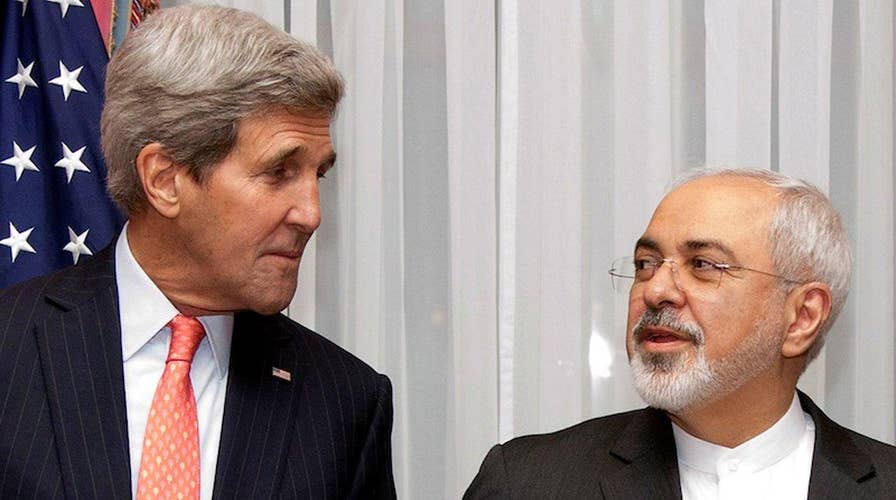Iranian officials turned to the United Nations Thursday to accuse the U.S. Supreme Court of violating international law by ruling that nearly $2 billion in frozen Iranian assets can be paid to victims of attacks linked to the country.
In an attempt to punish and isolate the United States, Iranian Ambassador to the U.N. Gholamali Khoshroo released a communique from the UN’s 120-nation Nonaligned Movement headed by Iran to Secretary General Ban Ki-moon that claims the practice by the U.S. defies international law.
The NAM called the U.S. waiver of "the sovereign immunity of states" a violation of America's international and treaty obligations. It called on the U.S. government "to respect the principle of state immunity" and warned that failing to do so will have "adverse implications, including uncertainty and chaos in international relations."
Last week, Iranian Foreign Minister Zarif accused the U.S. Congress and judicial system of authorizing “the confiscation of nearly $1.8 Billion of assets belonging to the Central Bank of Iran" in a separate complaint to the U.N.
The U.S. Supreme Court ruled last month that Iran must pay almost $2 million in compensation to relatives of the 241 Marines killed in the 1983 barracks bombing in Beirut. The ruling also opened the way for victims of other Iranian-orchestrated attacks.
In 2012, Congress passed a law that granted victims of attacks linked to Tehran to be paid for losses from frozen assets tied to Iran’s Markazi central bank.
The State Department said last week it believes U.S. courts "comport with international law."
The Iranian state Fars News Agency reported Sunday that Iran had filed a lawsuit against the U.S. at the International Court of Justice to force Washington to release its frozen assets.
Iranian President Hassan Rouhani has weighed in on the dispute saying at a cabinet meeting in Tehran, “That a court or judiciary in a corner of the world wants to decide about the Iranian nation’s rights and properties is fully illegal and against international law and the central banks’ legal immunity,” according to Fars.
In Thursday's letter, Ambassador Khoshroo used the backing of NAM, which often takes on anti-Western positions.
Fidel Castro, one of NAM’s greatest advocates, said in 1979 the group ensures “the national independence, sovereignty, territorial integrity and security of…countries” as they “struggle against imperialism, colonialism, racism, and all forms of foreign aggression, occupation, domination, interference or hegemony.”
Zarif’s letter of complaint to the U.N. Secretary General came nine days after the Iranian foreign minister met U.S. Secretary of State John Kerry to discuss implementation of the Joint Comprehensive Plan of Action, also known as the Iran nuclear deal.
At the time, Kerry said “I want to emphasize we lifted our nuclear-related sanctions, as we committed to do, and there are now opportunities for foreign banks to do business with Iran.”
In 2003 a U.S. federal judge ruled that the Islamic Republic of Iran not only helped create Hezbollah, the terror organization blamed by the U.S. and France for carrying out the Marine barracks bombing, but also provided the militant Shiite group with financial and logistical support for the deadly attack.
In the attack, which took place during Lebanon’s civil war on October 23, 1983, terrorists drove two trucks loaded with explosives into housing buildings for U.S. Marines and French paratroopers. A total of 58 French servicemen, six civilians and the two suicide bombers died along with the Marines.
In 2004, the Iranian government erected a monument in Tehran that commemorates the bombing, calling the terrorists who carried out the attack “martyrs.” It was the worst loss for U.S. Marines since the battle over Iwo Jima in World War II.
Fox News' Jonathan Wachtel and the Associated Press contributed to this report

